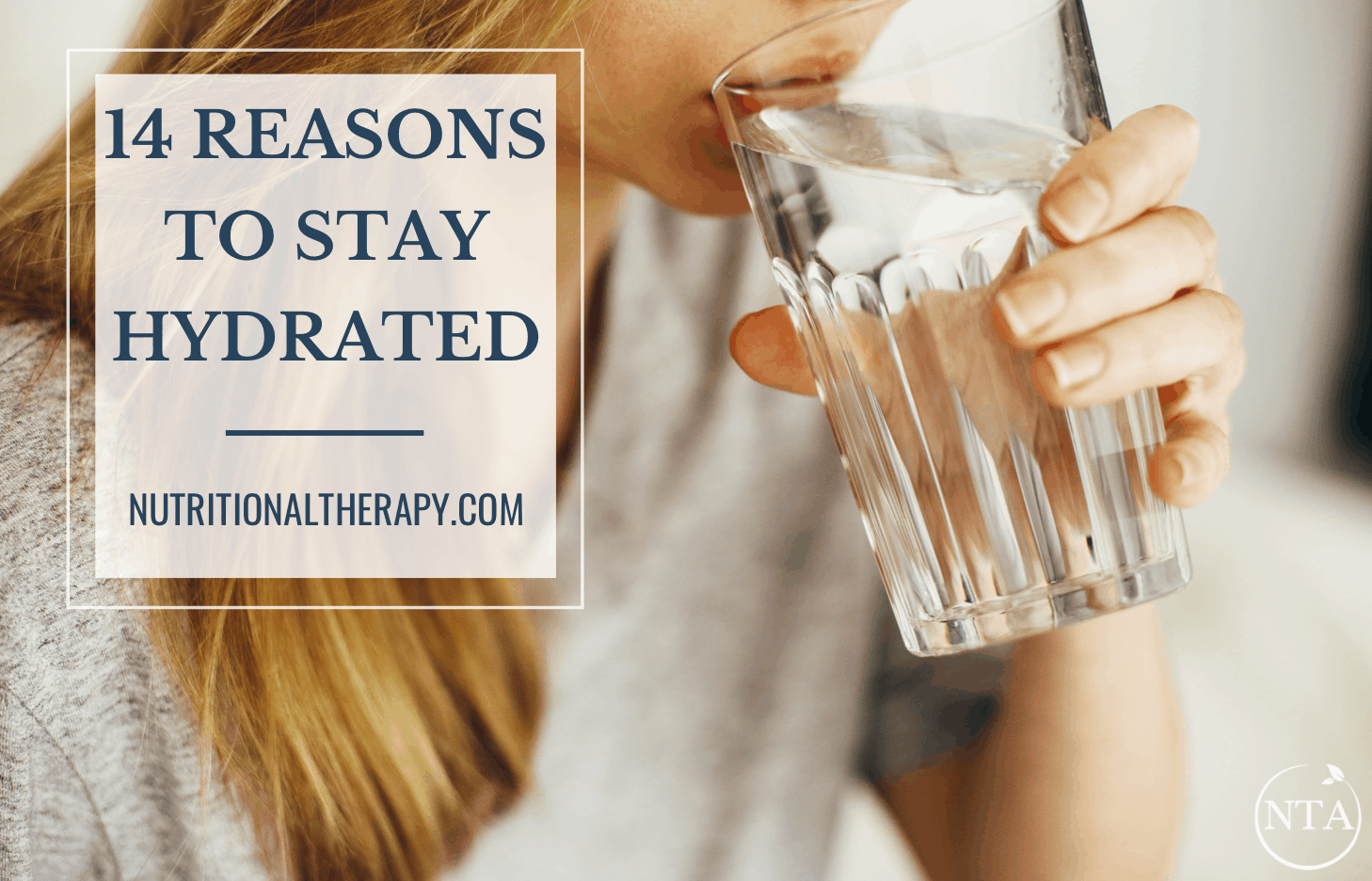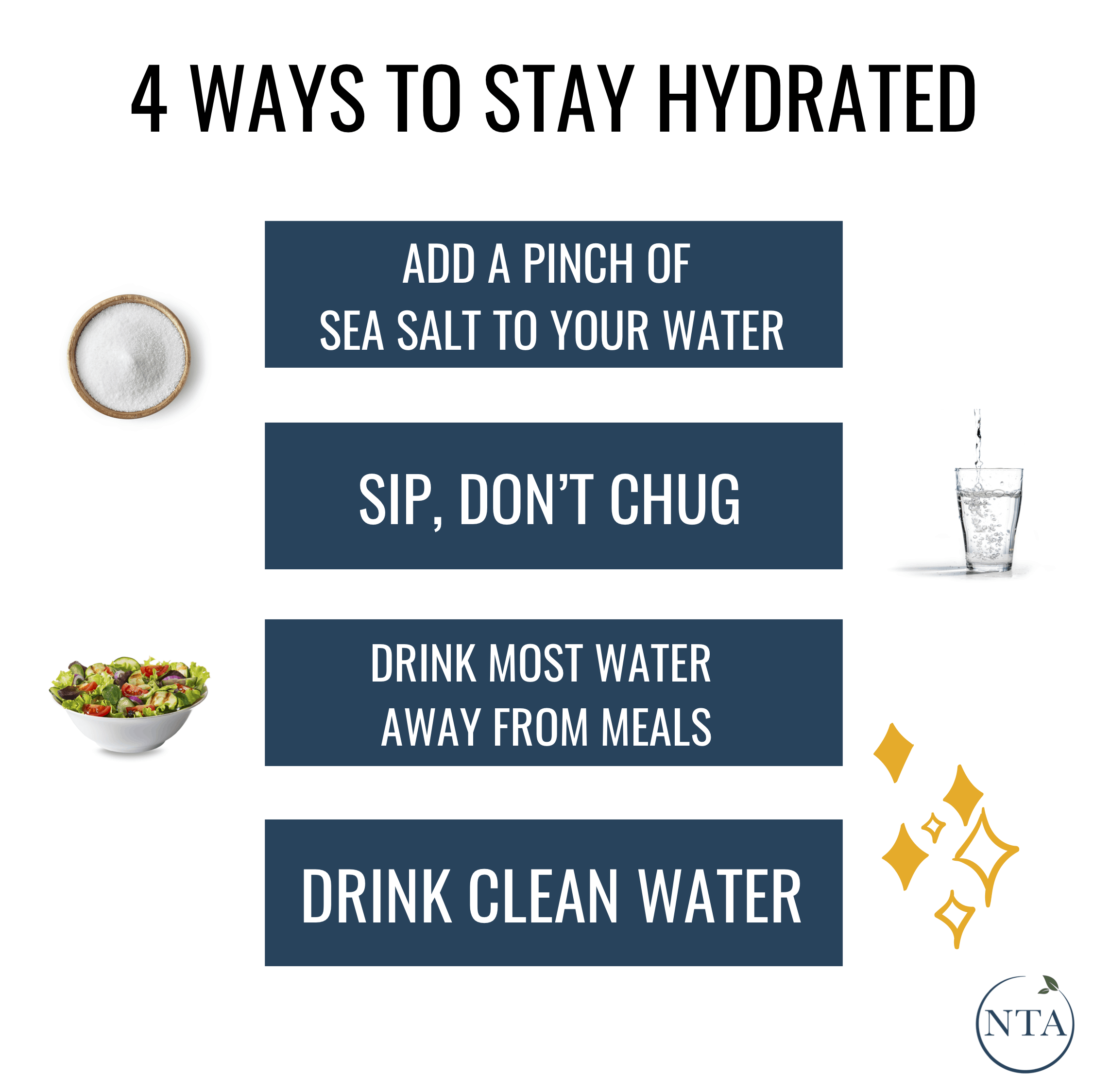Blog
14 Reasons to Stay Hydrated: Early and Late Signs of Dehydration


14 Reasons to Stay Hydrated:
- Improves oxygen delivery to cells
- Transports nutrients
- Enables cellular hydration
- Moistens oxygen for easier breathing
- Cushions bones and joints
- Absorbs shocks to joints and organs
- Regulates body temperature
- Removes wastes
- Flushes toxins
- Prevents tissues from sticking
- Lubricates joints
- Improves cell‐to‐cell communications
- Maintains normal electrical properties of cells
- Empowers the body’s natural healing process
The body can produce about 8% of its daily water needs through metabolic processes. The remaining 92% must be ingested through the foods we eat and the beverages we drink.
What Is Dehydration?
Water is one of the most common nutritional deficiency in the American population. If the body’s water content drops by as little as 2%, it will cause fatigue. A drop of 10% will cause significant digestive, cardiovascular, immune, and musculoskeletal health problems. Losses greater than 10% can cause death. Here are some signs of dehydration:
Early Signs of Dehydration:
- Fatigue
- Anxiety
- Irritability
- Depression
- Cravings
- Cramps
- Headaches
Mature Signs of Dehydration:
- Heartburn
- Joint Pain
- Back Pain
- Migraines
- Fibromyalgia
- Constipation
- Colitis
How to Stay Hydrated
Like with nutrition, water needs are always bio-individual. Some individuals will need more water than others in hotter temperatures, during intense physical activity, or when experiencing intense stress, blood sugar dysregulation, and so on. While the quantity of water intake should be tailored to each person, NTPs and NTCs are instructed to ensure that their clients practice the following water consumption habits:
- Add a pinch of sea salt to your water: Sea salt contains dozens of minerals, including the electrolytes calcium, magnesium, potassium, and sodium that help you better absorb and utilize the water you drink.
- Sip, don’t chug: The body can only process a limited amount of water at a time. You will be able to absorb and utilize the water you drink more efficiently if you take small sips over a longer period of time.
- Drink most of your water away from meals: Sipping a little water with meals is fine but try to consume most of your water between meals to avoid diluting stomach acid and negatively impacting digestion. Thoroughly chewing each bite will help provide most of the lubrication needed throughout the meal.
- Drink clean water: Get your water from clean, reliable sources and use a good water filter system for water that you drink or bathe in.

Summary
Optimal health requires daily consumption of sufficient water since the human body does not store water long-term. We’re not camels after all! Water is the most important nutrient and makes up about 60% of our body weight. Adequate hydration is necessary for basic human function. There are many ways to stay hydrated like adding a pinch of sea salt to your water. Before you grab a cup coffee to get you through the midday dip, try hydrating first. Your body will thank you!
The information in this article was drawn from the NTA curriculum and other reputable sources.
Resources:
Popkin, B. M., D’Anci, K. E., & Rosenberg, I. H. (2010, Aug 01).
Water, hydration, and health. Nutrition Reviews, 68(8), pp. 439-458.

Join us for a Live Webinar with one of our Instructors and Admissions Advisors!
During this call, you’ll explore and learn:
- How to create a rewarding career in holistic nutrition that will give you the confidence and competence to replace your full-time income (whether you’re new to nutrition or or using it to enhance your current services)
- How our unmatched education and instructor support sets our NTP program apart from other nutrition programs
- How graduates are successfully using their education and the many career opportunities available to you
- If the NTP program is the right fit for you and how to move forward in financing your education

